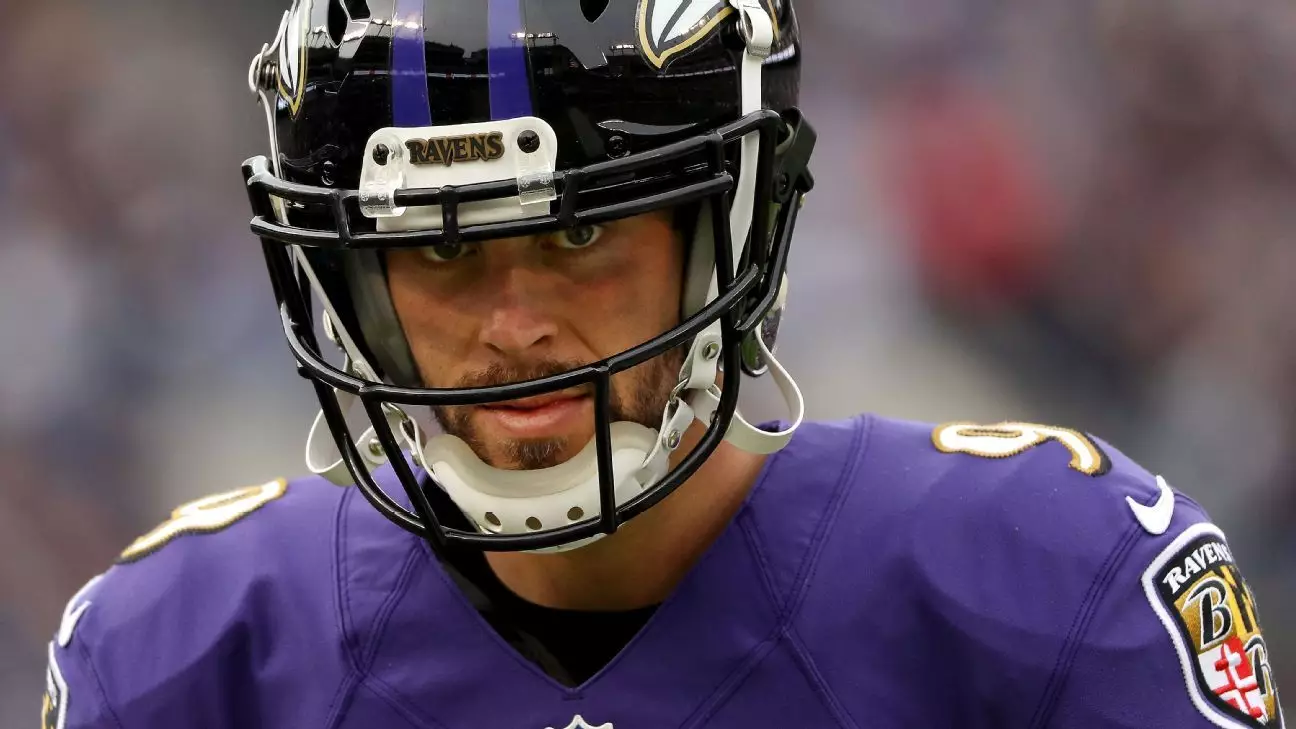In recent weeks, troubling allegations have surfaced regarding Justin Tucker, the Baltimore Ravens’ star kicker. A total of 16 women have come forward, accusing him of sexual misconduct while visiting high-end spas between 2012 and 2016. This significant increase in accusers has raised eyebrows throughout the NFL community and beyond, prompting discussions about the implications of such serious claims against a well-respected athlete.
The new round of allegations describes instances of alleged inappropriate behavior during massage therapy sessions. Reports include disturbing claims of Tucker making uncomfortable eye contact and leaving what was perceived as ejaculate on the massage table. Such allegations are severe and raise substantial questions not only about Tucker’s conduct but also about the culture and safety within the environments where such services are provided.
Reports indicate that the majority of these encounters occurred during Tucker’s early career in the NFL. This timeline is critical as it speaks to the evolution of public scrutiny against athletes and celebrity figures regarding their behavior and the accountability they face, especially in the wake of the #MeToo movement. In an era where accusations can shape reputations instantly, the ramifications for Tucker, who has built a career marked by his talent and achievements, cannot be overemphasized.
NFL Commissioner Roger Goodell has acknowledged the seriousness of these allegations. His comments at a recent press conference highlight the league’s commitment to addressing issues of personal conduct. Under the NFL’s personal conduct policy, players can face serious disciplinary actions when allegations of misconduct arise, regardless of whether they’re ultimately found to be true.
The Ravens organization has also issued statements affirming their commitment to handling such matters with care. Their zero-tolerance stance in relation to misconduct, previously emphasized in other contexts, is currently under examination as these allegations unfold. It is noteworthy that as Tucker continues to contribute to the team’s legacy as the NFL’s most accurate kicker, there is a palpable tension between his on-field accomplishments and the serious nature of the allegations he faces off the field.
Tucker’s legal team has vehemently denied the allegations, framing them as a gross misrepresentation of innocuous interactions. They assert that the allegations are speculative, suggesting that there is a broader issue at play concerning the treatment of male athletes accused of misconduct. The legal landscape surrounding these accusations can be quite complex; accusations of this nature often provoke intense media scrutiny that can overshadow the actual legal processes involved.
Moreover, the power dynamics at play between established athletes and service providers merit deeper exploration. Reports indicate that some therapists refrained from reporting Tucker’s behavior due to fear of retaliation, an unsettling reality that suggests systemic issues within the industry that may prevent professionals from voicing concerns. Such factors complicate the narrative and raise questions about how allegations are managed and investigated in the context of professional sports.
In an age driven by social media and constant news cycles, the portrayal of these allegations inevitably leads to public speculation and judgment. Justin Tucker himself has publicly denounced the accusations as “tabloid fodder,” a phrase that encapsulates the tension between media portrayal and personal reputation. Recognizing the difference between sensationalism and verified facts is crucial in forming a balanced opinion about the situation.
The role of media coverage in potentially influencing public perception cannot be understated. The way these allegations are reported can dilute the nuanced realities of both the accuser’s experience and the accused’s character. With varying degrees of coverage across different platforms, stories can be framed to provoke emotional responses, which may not always align with the facts at hand.
The allegations against Justin Tucker serve as a reminder of the complexities involved when personal conduct meets public scrutiny. For now, both Tucker and those making the claims find themselves entrenched in a landscape fraught with potential legal ramifications, ethical debates, and public opinion struggles. How the Ravens, the NFL, and the broader community respond will shape not only Tucker’s future but also highlight the ongoing discussions about accountability and culture within sports. As this situation develops, it is imperative for all involved to address the underlying issues with integrity, transparency, and a commitment to justice.

